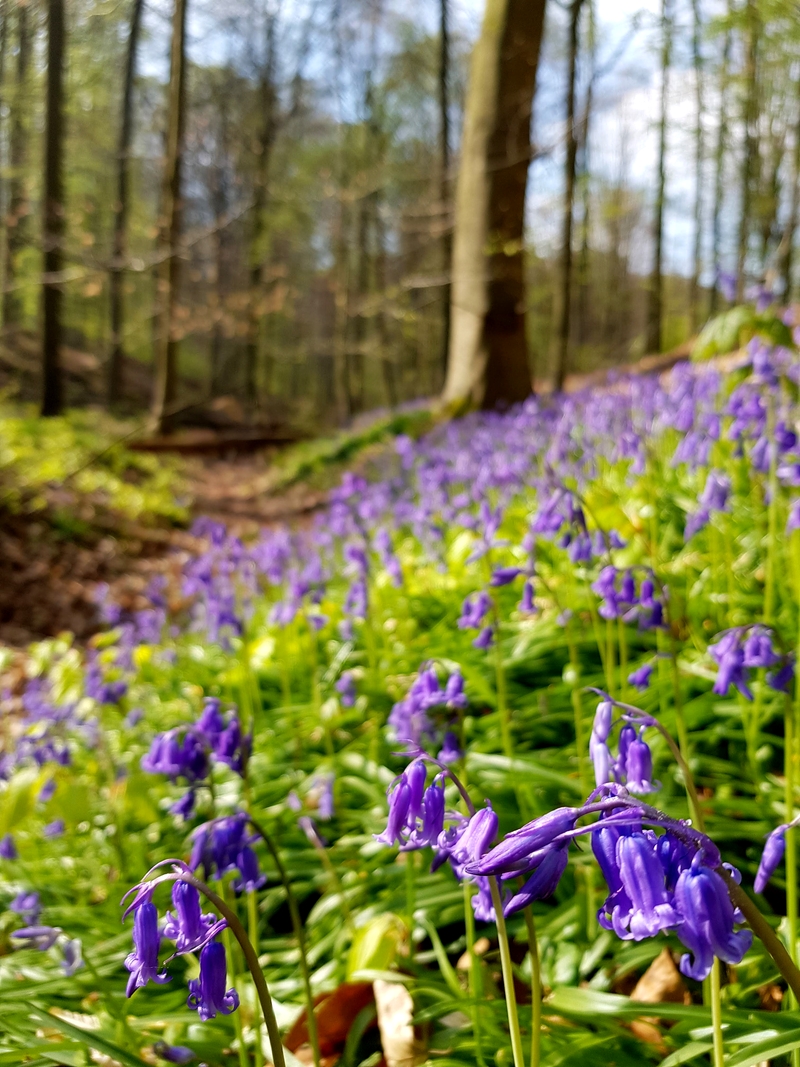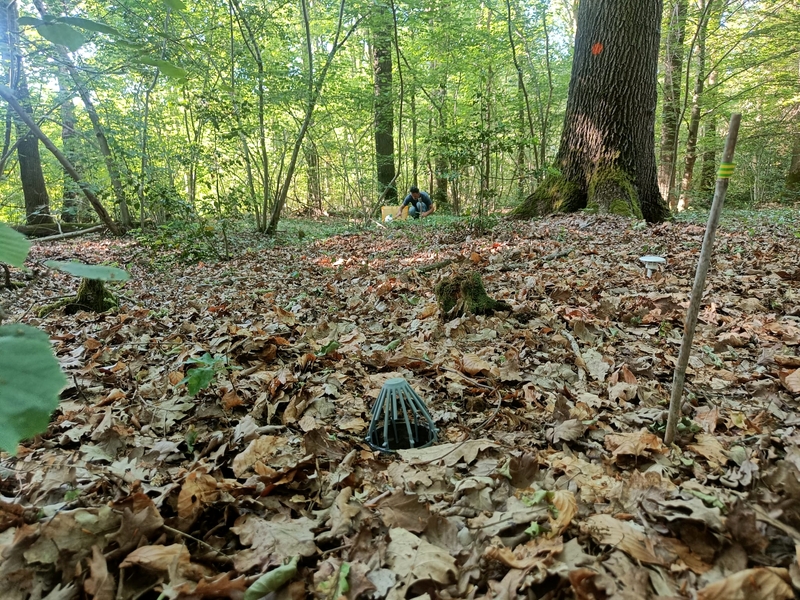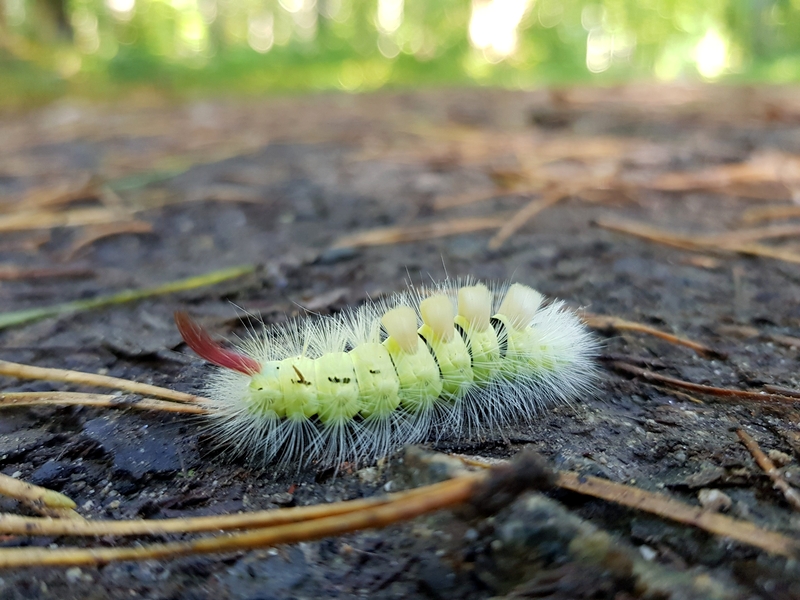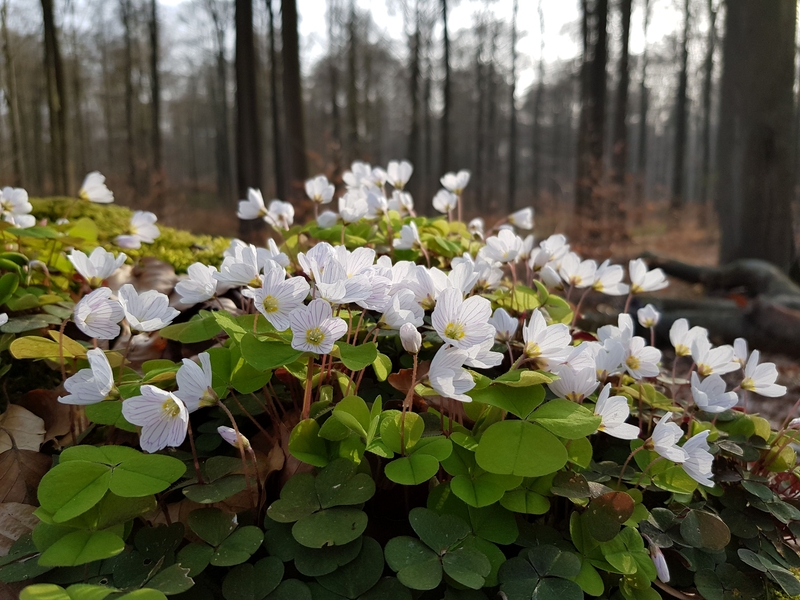
[Science News] – FOURCAST studies the effect of climate change on biodiversity in Belgium
Meise Botanic Garden coordinates the FOURCAST-project to study, in collaboration with partner institutes, the impact of climate change on biodiversity and ecosystem services in Belgium. Scientists study fauna and flora in cities, that act as urban heat islands, and in forests, that buffer climate.
The project FOURCAST (FOrest cold and URban heat island effects on climate adaptation of biodiversity) started in the beginning of this year and continues until early 2027. It is an initiative funded by Belspo, which is responsible for the federal science policy. Filip Vandelook, research director at Meise Botanic Garden, coordinates the project.
People need nature
 Filip explains the goals of the project “Ecosystems provide indispensable services for people and the planet. Just think about forests that stock CO2,or pollinators that are crucial for plant reproduction and that provide essential support to agriculture. That is why it is important to map the effects of climate change. In Belgium we have already registered an average temperature increase of 0,5 to 1°C over the past decades. This change obviously has consequences. For example: if herbs and trees start to flower earlier or later, the associated pollinators may arrive too early or too late to do their job. These are problems that we can prepare for by making the right decisions during nature restoration.”
Filip explains the goals of the project “Ecosystems provide indispensable services for people and the planet. Just think about forests that stock CO2,or pollinators that are crucial for plant reproduction and that provide essential support to agriculture. That is why it is important to map the effects of climate change. In Belgium we have already registered an average temperature increase of 0,5 to 1°C over the past decades. This change obviously has consequences. For example: if herbs and trees start to flower earlier or later, the associated pollinators may arrive too early or too late to do their job. These are problems that we can prepare for by making the right decisions during nature restoration.”
“The knowledge we gain will be used to inform and motivate policy makers to make targeted policy choices. More subsidies for reforestation for example, and more green areas with space for biodiversity in cities. If we know which plant species are threatened, we will also be able to do targeted seed harvesting for conservation in our seed bank. Once we know what conditions a plant species needs to survive, we can plant that species in the proper environment.”
Hand in hand
 The FOURCAST project consists of different studies. Meise Botanic Garden takes the lead in observing the changes that plants have accumulated over the past century. Recently sampled plants will be compared with specimens in the herbarium, that are up to 150 years old. The goal is to predict which species will be affected most by future climate change: enabling us to take proactive actions.
The FOURCAST project consists of different studies. Meise Botanic Garden takes the lead in observing the changes that plants have accumulated over the past century. Recently sampled plants will be compared with specimens in the herbarium, that are up to 150 years old. The goal is to predict which species will be affected most by future climate change: enabling us to take proactive actions.
The RMI provides historical climate data that can be linked to specific locations and dates. It concerns the temperature and monthly rainfall, from 1900 to the present, with a geographical precision of up to 1 kilometer. These data will also account for the effect of urbanization. In addition, the RMI maintains a very detailed weather model for the Brussels Region, with data on microclimate effects such as heat islands and buffering green areas and forests.
 The INBO examines recent changes in the microclimate of forests and the forest floor to determine whether there is an influence on the habitat and growing conditions of fauna and flora. 25 years ago, 56 plots across Flanders were extensively sampled to map the fauna and flora. This will now happen again at the exact same locations. The RBINS also dives into these same 56 forests to study the effects of climate change and other changes in these forests on soil fauna.
The INBO examines recent changes in the microclimate of forests and the forest floor to determine whether there is an influence on the habitat and growing conditions of fauna and flora. 25 years ago, 56 plots across Flanders were extensively sampled to map the fauna and flora. This will now happen again at the exact same locations. The RBINS also dives into these same 56 forests to study the effects of climate change and other changes in these forests on soil fauna.
Finally, the UGent will conduct a mesocosm experiment. A mesocosm is a controlled outdoor natural system, for example in a glass tank, in which natural conditions are simulated. The initial situation of each system is the same: the same plants and the same insects. The environmental factors will vary, in this case from the warmer center of Brussels to the cooler Sonian Forest.
 Natuurpunt Studie will also lend a helping hand by managing the online observation platform waarnemingen.be. Thousands of volunteers enter 4 million observations there every year. Data such as when a plant is flowering will supplement the other studies. This way, the whole of Belgium is covered.
Natuurpunt Studie will also lend a helping hand by managing the online observation platform waarnemingen.be. Thousands of volunteers enter 4 million observations there every year. Data such as when a plant is flowering will supplement the other studies. This way, the whole of Belgium is covered.
“All studies complement each other”, says Filip. “With this enormous amount of data we can analyze the current situation and predict the consequences for the future. That information then helps us to take action, and that's where the Belgian Biodiversity Platform provides support. This science policy body has the experience and support to formulate policy proposals at regional, national and European level.”
Many boots in the woods
“It is a project that requires some effort, but will certainly be worth it. People literally have their feet in the woods for the research conducted by INBO and RBINS. They count plants and set insect traps. We expect to find more thermophilic species than 25 years ago, fauna and flora that prefer slightly warmer temperatures.”



